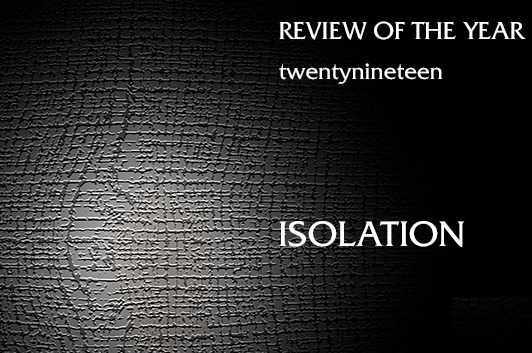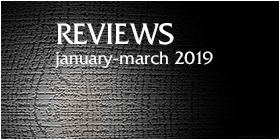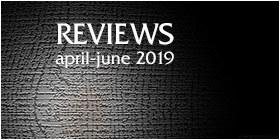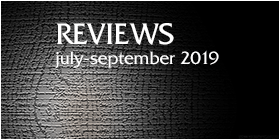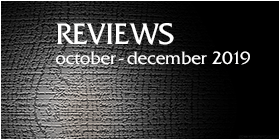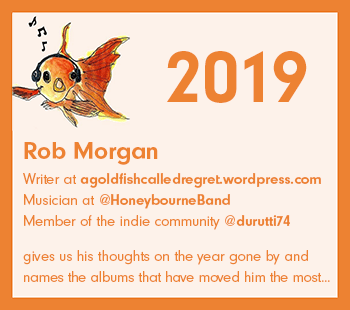
So why are we here? To celebrate the year gone by. To reflect and look forward simultaneously, like the Roman God Janus. (Yeah it's not just Boris Johnson who has a Classical education, my Latin O level has always been part of my armoury). It's been a significant year for me personally as I celebrated my 50th birthday, a half century of ups and downs and plateaux. So what have I achieved in fifty years? That's what a lot of people would say. Being born on the same day in 1969 as Jacob Rees-Mogg gives me a constant reminder of what I could never have been and what I thank God I'm not. But really do we need to achieve anything to feel happy about ourselves? As I have aged I have become less hung up on the trophies and achievements of life. To have a happy stable life in a loving relationship, to support my family in the best way I can, to be the best person for others and for the world. To do no harm, or as little as possible. Ain't that enough? Sure I didn't fulfil the potential or the investment of a future in a certain direction, but how happy would that have made me? Would I be here now in this position if certain actions hadn't happened? Probably not. So I'm finally content in my fiftieth year. ...
But that's just me. How was 2019 in other ways? I suppose in a way it was a year of reluctantly giving up on trying to stay ahead of the curve. One area I have truly given up with - and it really pains me to admit this - is the charts. This is the year I stopped buying Now albums simply because there were so few songs I recognised or enjoyed. Something has changed in the last few years regarding contemporary pop music, it has diversified and split itself so completely that there is no centre any longer, unless the centre belongs to Ed Sheeran. He appears to be the most important man in pop at the moment, even a relatively low key album of collaborations has generated huge successes and a number of singles stuck to the top of various demographics and charts. Want pure pop? He's got Beiber. Want legendary rappers? He's got Eminem and 50 Cent. Want contemporary grime? He's got Stormzy. And so the list goes on, covering all bases. Surely he's the man for all seasons. And good luck to him. But back to the point - there no longer seems to be a consensus on great current songs any longer. Look back earlier in the decade and think of the pop music which crossed boundaries. 'Get Lucky', 'Call Me Maybe', 'Uptown Funk', 'Rather Be', 'Firework', 'Black Magic'... All great pop music, all part of the national fabric of life, it just doesn't happen these days. It's like nobody cares any more, the streaming revolution has made us more insular, we all have our own radio stations now on Spotify or Apple Music or Deezer, we know what we like and we don't want to hear anything new to challenge us . That's decay, that's boredom, that's not pushing forward. So maybe I need to re-engage with the charts after all. There's always something new, always something out there, and always something better.The problem perhaps is I've spent so long in the margins that I don't notice the mainstream any longer. I suppose it heads back to my youth - the desire to look cool, reading the music papers in the school library, extolling the virtues of Cocteau Twins over the Thompson Twins, sneering at Simon Bates on Radio One in the common room. I'm no longer interested in the Top Of The Pops reruns on BBC4, by 1989 I was beyond all that thank you very much. I must have been an insufferable snob back then. But sometimes I would find the margins feeding into the mainstream - I'd been banging on about Happy Mondays to largely uninterested friends at least two years before their appearance on TOTP in late 89. But as time has progressed I have felt less and less crossover from the margins. Probably the Britpop movement killed that - the margins became the mainstream, and the centre didn't hold, even if the drug habits did. By the late 90s it was all over, and even if a so called indie band made inroads into the charts during the new millennium they were only tolerated for a short time - one or two singles, maybe an album, but a career? Fat chance. Only a band like Coldplay - bankrolled by the giants at EMI - have prospered really, their roots as an indie band have been removed a long time ago.
So the margins is where I remain, though I'm always happy to hear a fantastic pop song now and again (would it kill my credibility to say I think 'For You' by Rita Ora and Liam Payne is one of the best singles of recent times?). I'm happy in the margins by now. In recent years I've spent more time listening to new music than I did at the start of the decade - indeed the years 2010 to 2014 seem like missing years where I hardly took any notice of music beyond what I heard on the radio and new albums by my favourite acts. Over time this changed, I realised that the little smartphone in my pocket gave me access to more music than I ever thought possible, and access to radio stations around the world, and via social media and blog posts an outlet for my own thoughts and feelings about music and access to a community of people who not only loved the same weird shit that I did, but would be pointers to other musics both old and new that I should investigate. So now I have a small circle of online friends and radio shows I listen to, Pete Paphides on Soho Radio on Tuesdays, Adam Jeffery on Coast and County on Wednesdays, Josh Meadows' 'It's A Jangle Out There' on Main FM on Thursday, plus other podcasts like Yesterday's Jam, Emma House and more.
For me the turning point towards renewing my love and hunger for new music again would be the discovery of the Everything Indie Over 40 community during 2014, an enthusiastic, knowledgeable and light-hearted group created by Steve Williamson. Over time I became part of the team, writing reviews and articles for the EIO40 website, helping out with online features and competitions and researching and hosting the Album Listening Parties. But the community isn't just about the past, it also promotes new music too, through album and gig reviews and regular 'expos', where community members suggest new songs which then battle it out in a series of Twitter polls. It's through these I've renewed my love for discovering new music, and I will actively seek out new albums and acts brought to my attention through the community, as well as finding new music to share to others in the community.
I cannot praise Steve's work in the community highly enough. His dedication to the tasks, logistical skills and imagination have inspired me no end. I don't know how he finds the time to do it all, especially now he is publishing books with John Hartley as i40 Publishing, creating social events for the community and making annual pilgrimages to Shiiine On festival in Butlins Minehead where he runs an indie quiz. Oh and there's the podcasts and radio shows too. How does he do it? He manages to keep the community grounded with pragmatism, good humour and a sense of fun. Long may he run.
Ahem… I seem to have become sidetracked. Review of the year, wasn't it?
So what music have I enjoyed this year? Well if I'd kept up with the i40 journal (another fantastic idea, by the way) I'd be able to look back over the year and see my favourite albums listed. As it is, some albums I've adored include Scarred For Life by Medicine, Happy In The Hollow by Toy, 35 Years On Woodfield Street by the Grief Brothers, How to Live by Modern Nature, Why Hasn't Everything Already Disappeared? by Deerhunter, The World Is A Bell by The Leaf Library, The Paralian by Andrew Wasylyk, Ripe For Anarchy by Business Of Dreams, We Love You by Bilge Pump, Into The Kaleidoscope by Japonica, Under Blue Skies by Armstrong, Sauropoda by L'Eclair and Kiwanuka by Michael Kiwanuka.
Those people who follow me on Twitter will notice one name missing from the list. That name is Olden Yolk and they deserve more than a passing mention. I discovered them purely by accident - checking Twitter for mentions of The Kingsbury Manx (besides my own tweets on them) and finding someone comparing Olden Yolk to them. I was intrigued enough to listen to their debut album from last year which was very good, but this discovery happened a few weeks before their second album Living Theatre was released. The single 'Cotton And Cane' was an instant hit in my house - the breezy guitars and light dabs of piano hiding a lyrical tribute to someone's passing, the tumultuous litany of memories overwhelming the singer. It moved me to tears. And so did the album. A beautifully paced collection of songs, working well as an album, with instrumental interludes on occasion for breathing space after the overflow of emotions. Swapping songs between the male and female voices works perfectly too. Each song its own private universe, lines and phrases jump out and clarify, rhythms are unusual, songs swerve and dive. It's an endless rollercoaster of an album, an exhausting but thrilling ride, and it became my album of the year. And with the zeal of the newly converted I plugged away at both single and album until others heard them too.
Amazingly for a small band from America, they toured Europe in the Autumn too. I saw them in Bristol and they were stunning, emotional and powerful, yet human too - the mistakes made the songs better in a way. And yes I suppose if they read this then sorry for being such an over the top fanboy afterwards but hell you blew this old cynic away. Catch them if you can. (At the time of writing they are touring the US with Modern Nature, which is a dream gig for me).
An interesting side point to the Olden Yolk gig was the fact I attended with my 18 year-old nephew. That was quite an eye opener to be honest, chatting to him about music, his likes and dislikes, how he accesses music, and how he views "old" music. Oddly enough we connected over The Wombats - which I certainly wasn't expecting - and we ended up singing our way through their debut album on the journey back. What was most unusual was … sorry nephew ... he loved the song 'Let's Dance To Joy Division' but had no idea who Joy Division were. So that was an interesting conversation! Luckily he had heard of New Order so that was a start. In terms of owning music, he saw no reason to own any music at all when he could access whatever he wanted through his phone via YouTube, Spotify or Apple Music, and he certainly wasn't interested in buying a record player and joining the vinyl revolution. I am not sure how the music industry could engage someone like him into taking an interest - maybe that's a problem I don't have to solve. But I feel a determination to act as a guiding uncle and provide occasional playlists for him, to whet his appetite. Oh and yes he did like Olden Yolk, even if he'd never heard of them.
So that's 2019. Ups and downs, swings and roundabouts. As I wrote at the start, it's easy to become overloaded and overwhelmed, but a little guidance here and there (and this website is a good guide) will help clear the path to musical enlightenment. Whatever 2020 brings let's hope there's still artists creating exciting, fresh, intriguing music and places to promote it - whether online, in the media or in print. Here's to the future my friends and all that it holds in store. I hope that each day from now on holds more…
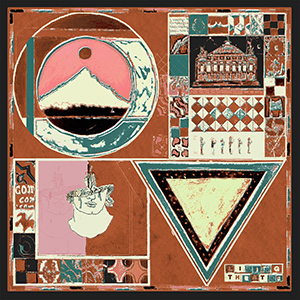
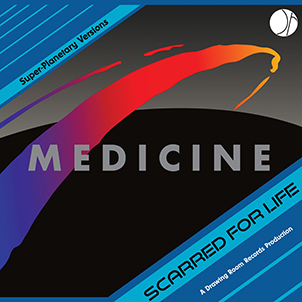
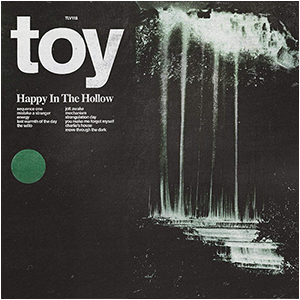
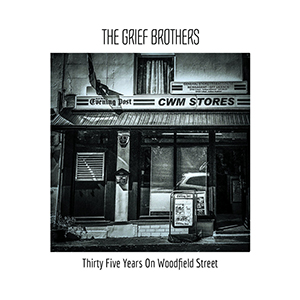
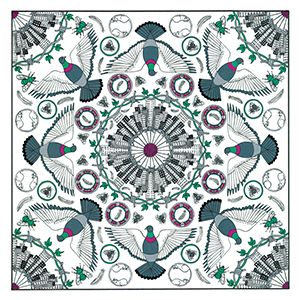
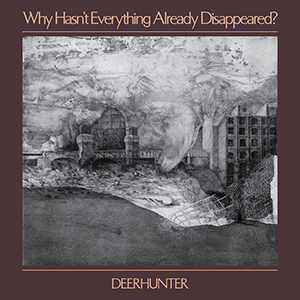
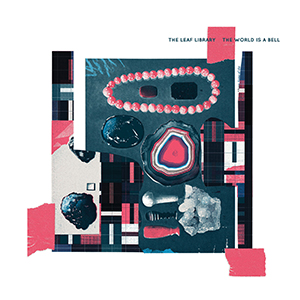
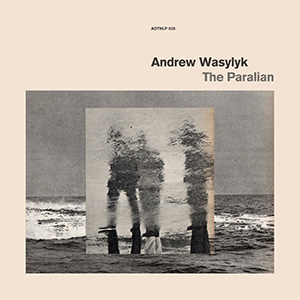
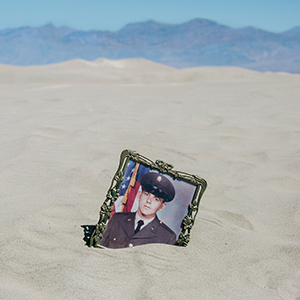
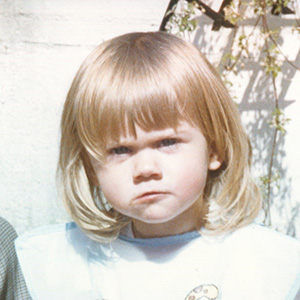
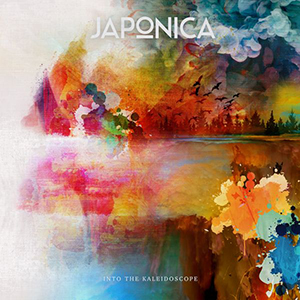
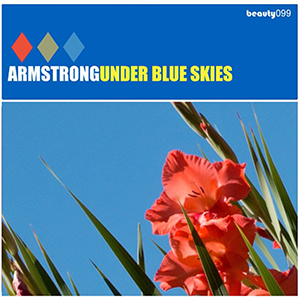
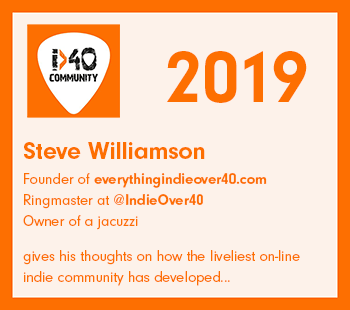
So rather than becoming simply a platform for 'remembering' we developed into a place for 'discovery'.
Although this durable bond between the past and the present remained strong, the musical landscape binding it has changed inextricably. Those 18 year-olds on stage at the Sebright know nothing of record deals, album advances, studio time and royalties. Streaming is part and parcel of their world view and how they harness its potential will form an integral part of their plans. Poor remuneration by Spotify may be a cold reality but because they were born into this landscape new artists are likely to view streaming from a different perspective to those on the stage at Butlins who lived in a different era and are more likely to decry exploitation and not without justification.Streaming can offer a springboard to artists by providing a means by which their music can be heard across the globe. Without borders, without exclusivity, without lawyers. Streaming provides easy-to-access and easy-to-interpret data which can pinpoint where people are listening to the artist's songs and also how many times. Valuable data if a band wants to target a particular area through local bloggers or digital magazines. This sort of information is also useful if considering a tour or live dates.
There is also a sense of freedom and control with the ability for bands to develop their creativity and output on their own terms and at their own pace. Songs and albums can be released without the unreasonable demands of external parties. If you have six or seven songs ready for release then why try and squeeze out five or six more just to placate a label that requires a twelve-song album? Get it out there. Punters will prefer six killers and no fillers anyway. How many bands in the 90s collapsed under the weight of expectation and demands for enough songs to fill albums and multiple b-sides?
From a listener's perspective this new landscape of streaming and social media connectivity can combine and actually produce something similar to the world we once knew and felt comfortable in. We still swapped mixtapes with friends back then even though we were told “Home Taping Is Killing Music” but we could do this guilt-free because we did buy our own records, cassettes and CDs and sometimes as a direct influence of those mixtapes.
In much the same way, social media now enables the sharing of “virtual mixtapes” through a different method but with the principal remaining the same. Songs and albums can be recommended within collectives and communities grouped together around common interests with streaming providing an entry point and the purchase and even gig attendance following on.
That’s very much been our experience anyway and as a facilitator bringing together a community we have seen tangible evidence of this happening. Whether we are hosting an interactive feature on Twitter about nostalgia or new music – and at the moment new music is certainly dominating more of our time – our aim is always to encourage people to listen to music foremost with the features designed specifically so that listening is the essential requirement in order to be an active participant. Doing it this way has proven to be a much more potent tool than publishing reviews or just recommending a song or album and with tangible results.
Streaming does help us deliver success with our interactive features enabling people to sample the goods first and then to support the artist by purchasing songs and albums, attending gigs and buying their merchandise as a natural progression.
The days of buying Slanted & Enchanted without hearing a single note because someone at the NME told you to may be seem like a long forgotten era but social media has created a whole community of NME reviewers, but much more trustworthy ones. You are more likely to respond favourably to recommendations when it comes from a like-minded soul in a community in which you have built trust and relationships. Trust is a powerful and enduring virtue and communities that thrive on these principles are the sorts of places that bands and artists should be targeting. There is no value in them being aloof with their listeners or potential fanbase when social media provides the ideal platform to engage directly with them. Building that trust can result in long term and often mutually beneficial relationships. Connect, engage and build. It’s worked for us.
